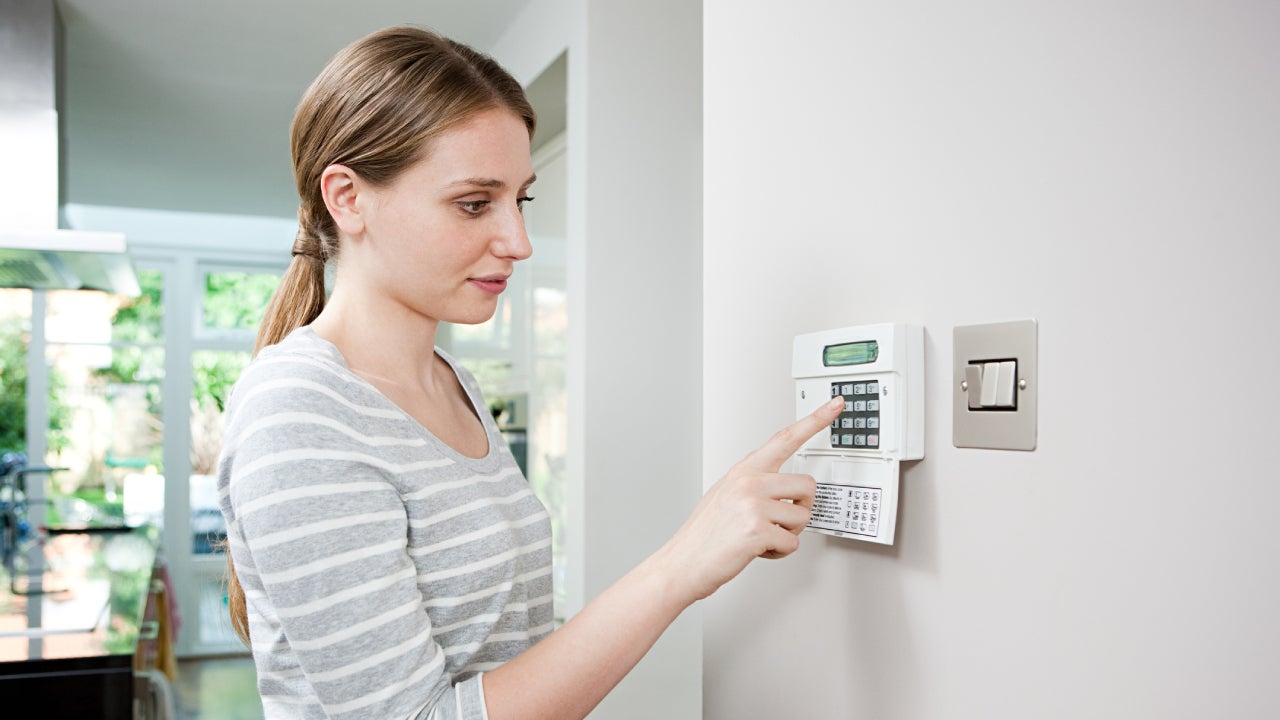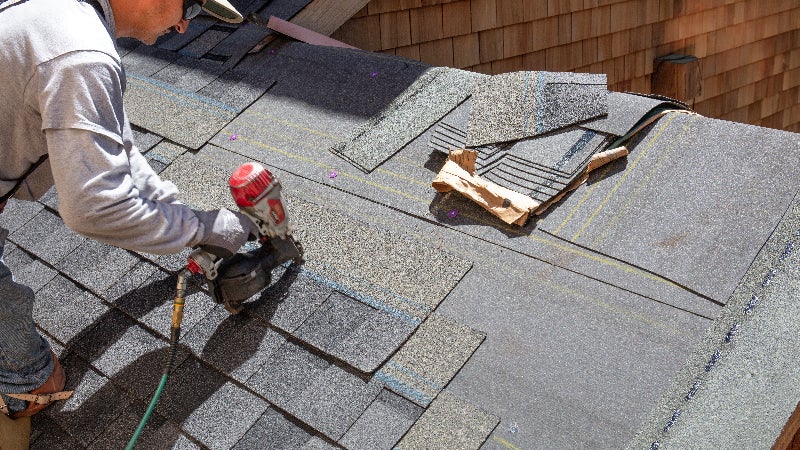How much does it cost to rewire a house?

Unlike other residential renovations and repairs, rewiring your home isn’t the most visually obvious of projects. But that doesn’t make the need to update the house’s electrical systems and wiring any less critical. In fact, failing to upgrade your home wiring when necessary can have serious, even fatal, consequences.
According to the Electrical Safety Foundation International (ESFI), a non-profit industry association, roughly 51,000 home electrical fires occur each year, causing about 500 deaths, 1,400 injuries and $1.3 billion in property damage. And U.S. Fire Administration statistics from 2020, the latest available, report an 18 percent increase in dollar losses due to “residential building electrical malfunction” fires.
Given these grim statistics, it’s important to ensure your house’s wiring is in good shape. Rewiring work can be expensive: Depending on the size of your home, the total tab can run as high as $30,000 or more. But failing to address rewiring needs can be even costlier in the long run.
Key takeaways
- Replacing faulty or outdated wiring in your home can be pricey, but it may save your life.
- On average, the cost to rewire a house starts around $10,000, but the exact expense will depend on the scope of the project, the size/layout of your home and other factors.
- If cost is a concern, you may be able to finance your rewiring project with a personal loan or home equity loan or HELOC.
How much does it cost to rewire a house?
Several warning signs can signal homeowners that rewiring the house is necessary:
- Repeatedly blown fuses or tripped circuit breakers
- Constantly dimming or flickering lights
- Light bulbs frequently burning out in the socket
- Sparks from an outlet when you unplug a cord
The problem may be limited to one area, or it may be system-wide. Figuring the latter, the cost to rewire a home typically ranges from $10,000 to $30,000, according to HomeGuide, a platform that pairs homeowners with professional service providers. On average, homeowners pay about $5 to $17 per square foot for a home rewiring project.
Calculating the final bill isn’t so simple, though, because a variety of factors come into play, from the hourly rate charged by the electrician to the prices for new panels and wires to the accessibility of the old gear.
Factors that affect the cost of rewiring your house
The costs to rewire your home depend on its size and age, the number and nature of the rooms being rewired, and the amount of wire that needs to be replaced. Each of these items impacts the labor cost, which accounts for the majority of the project’s overall price tag, says Bailey Carson, a home expert for Angi.
If you’re wondering how much to rewire a house, here are some factors to consider:
Home size
Rewiring projects are typically charged per square foot, so more home means more wiring, more outlets and, consequently, higher costs, Carson says. When including both labor and materials, it can cost from $2 to $4 per square foot for a rewiring project. For a 2,000-sq.-ft. home, that can run $4,000 to $8,000.
System type and materials
“The cost will vary greatly based on whether you’re simply upgrading electrical panels, rewiring part of your home or rewiring the whole house,” Carson says.
The project costs will also vary based upon the types of wiring and cables being used. For instance, nonmetallic or NM cables, which are the most common for residences, cost about $0.60 to $0.80 per linear foot, according to the website HomeAdvisor, which helps homeowners find pros for their projects.
Underground feeder (UF) cable — the same as NM cable, but vital for subterranean or moist spaces — the cost is $0.50 to $0.70 per linear foot.
Electrical panel upgrades
If your home is particularly old and has an outdated electrical service panel, you may need to replace this equipment as well, which can cost $900 to $2,500.
Labor
You’ll need to pay a licensed electrician to do rewiring work. Typically they charge by the hour, with the usual estimate being one hour of work for every 100 square feet of wiring.
The nationwide average cost of hiring a licensed electrician ranges from $162 to $535 per hour, with larger cities and more populated areas on the higher end of the scale, according to website HomeAdvisor. You’ll also be looking at charges for extra labor and parts if you need an updated electrical panel or new outlets installed in your home.
Accessibility
Since rewiring a home requires removing the old before installing the new, the labor cost will vary greatly depending on how easy it is for an electrician to access the vintage cables. “Older homes and homes with hard-to-reach areas will cost more than newer builds or homes with simpler layouts,” Carson says.
It can be very difficult to fish new wires in old homes with plaster walls. And you’ll have to pay another contractor to open the walls and close them up again. (Electricians do wires; they don’t patch walls or ceilings.) “If your pro can access wires through crawl spaces, basements, attics or joists in the floor, the project will cost less,” she says.
Permits and inspections
Permits and inspection criteria will vary based on your current system and where you live. Often these are required to ensure your wiring is up to modern standards, abides by any local codes and will be safe for you and your family for decades to come. According to Angi, permits for this type of work usually range from $75 to $150 each.
Due to the high-level expertise and significant time commitment involved, electrical inspections typically cost between $100 to $400 with the average being about $200. They’re usually performed after the electrician runs the new wires but before the new outlets and switches are connected.
How to cover your house rewiring costs
Rewiring a home is not cheap. Many homeowners choose to finance the project instead of paying for the work with a check or credit card. Luckily, there are a few options for funding a rewiring project.
Personal loan
A personal loan will usually give you the cash you need in a short time frame. You do not need any collateral to qualify, but you will need an income and a good credit score to qualify for a low interest rate. Often you can get a rate that’s lower than the APR on your credit card — a good thing, given rewiring bills can be in the upper-four figures, if not higher — though you will have to have your finances in order to qualify.
Home equity loan
A home equity loan allows you to borrow against the equity you have built up in your property. As with a personal loan, a home equity loan is a one-time loan that you receive in a lump sum. Because you use your home as collateral, the lending requirements can be a little more lenient. A good credit score will help secure your loan, and offering your home as collateral will allow lenders to feel confident in your ability for repayment, so a home equity loan usually has a much lower interest rate than a personal loan, and its interest may be tax-deductible as well.
Home equity line of credit
A home equity line of credit (HELOC) could be the best solution if you anticipate having multiple phases of your rewiring project or you aren’t sure of the full cost up front. A HELOC works like a credit card in that you’ll receive access to a line of credit with a limit. As you repay what you borrow, it frees up more available credit for you to reuse. A HELOC uses your home as collateral, which means its interest rates are often lower than those for credit cards or personal loans.
6 tips to save on home rewiring
While homeowners need to be cost-conscious, it’s generally not a good idea to take a DIY-approach or skimp on rewiring projects. There’s a reason electricians require professional certifications — one wrong move can result in electrocution or a fire. It’s also easy to cause additional damage when doing electrical work.
“This is typically not the area where saving money should be the priority,” says David Steckel, home expert at Thumbtack. “The priorities should be doing it right and doing it once, in that order.”
Still, there are ways to minimize ancillary or unexpected costs when you have your home rewired.
- Get an inspection first. Have a licensed electrician perform a full inspection of your home’s wiring before moving forward with a rewiring project. It is possible that you can make do with minor repairs instead.
- Avoid rewiring work that involves opening walls. If possible, opt for simpler approaches. “Opening walls is a much more complicated task than running wire through the attic or basement,” Steckel says. “Fixing walls after all of your electrical work is complete can eat up 25 to 30 percent of your total project budget.”
- Shop around. Before hiring an electrician to complete your rewiring project, read up on the electricians in your area, taking into account reviews and ratings posted by previous customers. It’s also a good idea to obtain at least three different electricians’ quotes. The cheapest bid may or may not be the best, but comparing several quotes will help you target the best combination of price and expertise for the job you have.
- Combine projects when possible. You may only need to fix the wiring in one room, but consider updating your outlets or electrical panel while you’re at it. It could increase your home’s value and save you money, too.
- Obtain permits. Some states may require you to obtain a permit before any work can be performed; you may even be fined if you don’t acquire one. So knowing the local laws can save you from having to pay punitive costs after the fact.
- Prioritize projects. Knowing what each room costs to rewire will help decide how much work you need. Not all rooms will cost the same to rewire, even if the square footage is the same: Rewiring a bathroom or a kitchen can be vastly more expensive than rewiring a bedroom or basement. For example, rewiring a 200-square-foot kitchen can cost up to $3,400, while rewiring a living room of the same size starts around $1,000.
How long does it take to rewire a home?
According to HomeGuide, rewiring a home typically takes between 3 and 10 days, but timelines vary based on the complexity of the project and the size of your home. In some cases, the crew will need to open up your walls to access your wiring, so if you want to avoid the mess and disruption, you’ll want to stay somewhere else while the work is being completed.
Does my insurance cover rewiring a house?
If you already have homeowners insurance and need to rewire your house, your policy may cover it as part of your dwelling insurance. You could also qualify for an insurance discount if you upgrade your dated wiring.
However, if you’re buying a home with certain types of older wiring – including knob-and-tube and aluminum wiring – some insurance companies may deny coverage. That’s because these kinds of wiring pose a higher likelihood of fire and electrical damage, and many insurers aren’t willing to assume that risk.
The bottom line on rewiring a house
While rewiring a home is expensive, the good news is that you usually only need to do it once, so you will not have to worry about recurring expenses or ongoing maintenance. It’s important, though, to use the best materials and services possible to ensure the safety of your home. This is one project where you do not want to cut corners; rewiring your home can literally save your life.
“Remember the importance of this job being done right,” Carson says. “A poorly wired home can be a huge danger to you and your family. So, it’s worth it to invest a little more in a high-quality pro to avoid code violations, future repairs or potential fires — all risks that can come from faulty wiring.”
Additional reporting by Taylor Freitas
You may also like

How to prevent your home from flooding

How to secure your home on a budget

How much does it cost to replace a roof?

How much does it cost to install a concrete patio?


